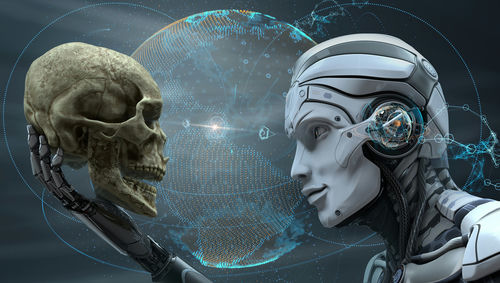When the Pope warns that technology could undermine human dignity, it’s time to listen closely, folks.
Pope’s Dire Warning on AI and Social Media
Pope Francis has taken a bold step, directly addressing the young Catholic social media influencers at the Vatican. At its first-ever mass for these digital creators, the Pope didn’t mince words about the ethical minefield posed by artificial intelligence and social media. What’s the concern? The potential erosion of human dignity due to unchecked technological advancement. This isn’t just a religious view; it’s a call to ground technology in ethical practices, something even secular minds can agree on.
Pope warns against undermining human 'dignity' in AI, social media erahttps://t.co/YISeAQ9KdK
— The Standard Digital (@StandardKenya) July 29, 2025
The Vatican’s release of the doctrinal note “Antiqua et Nova” underscores the gravity of the situation. This isn’t some pie-in-the-sky idealism; it’s a pragmatic look at how AI should complement, not replace, human intelligence. Autonomous lethal weapons are on the table too, and the Vatican has made it crystal clear that these represent a profound ethical concern. If that doesn’t get your attention, what will?
Historical Context of the Church and Technology
The Catholic Church isn’t new to this game. From the printing press to radio, the Church has historically engaged with technological and ethical questions. What’s new is the rapid pace of AI advancement and the proliferation of social media. We’re talking about deepfakes, misinformation, and the erosion of human relationships. These are not just Catholic concerns; they’re human concerns, and they demand attention from all sectors of society.
The surge in AI-generated content, including viral images of Pope Francis himself, has raised awareness about digital manipulation. The Pope has been vocal about the dangers and opportunities of AI, advocating for ethical frameworks and international cooperation. This isn’t just a religious narrative; it’s a call for global action.
The Stakes for Influencers and Tech Giants
This isn’t just about the Church preaching to the choir. The Vatican’s engagement with digital creators is about real-world impact. Catholic social media influencers are now tasked with embodying and spreading ethical digital practices. They act as intermediaries, translating doctrine into digital practice. The power dynamics here are fascinating; the Vatican wields moral influence, while tech companies hold technological power. Yet, both face growing ethical and societal expectations.
Pope Leo XVI on Tuesday called on the world to protect human "dignity" online as it faces the "challenge" of AI, at the Vatican's first mass for Catholic influencers.
READ:https://t.co/KAwNPgUiqd pic.twitter.com/ATCc9MXSt8
— GMA Integrated News (@gmanews) July 29, 2025
AI developers and tech companies should be paying close attention. Their innovations are under ethical scrutiny. This is not a call for censorship but for responsibility. The Vatican’s moral authority might not carry regulatory power, but it certainly carries weight in the court of public opinion.
Long-Term Implications and Global Conversations
The Vatican’s stance is likely to influence global conversations on technology and ethics significantly. In the short term, there’s increased awareness among Catholic digital creators about their ethical responsibilities. Public discourse on AI ethics and human dignity is heightened. But what about the long-term? The integration of Vatican ethical guidelines into broader AI governance frameworks is a real possibility. This could influence educational curricula, public policy regarding digital literacy, and ethics.
At the conclusion of the Mass of the Jubilee of Digital Missionaries and Catholic Influencers in St. Peter's Basilica, Pope Leo XIV addressed the challenges of evangelizing in the digital age, particularly in light of AI: the Pope called on Catholic communicators to develop a new… pic.twitter.com/cHQWCXcRwW
— EWTN Vatican (@EWTNVatican) July 29, 2025
The impact on the tech industry could be substantial, with increased scrutiny and calls for ethical accountability. Cross-sector partnerships on digital ethics education and advocacy might just be the key to a more ethical digital future. The Vatican’s leadership on AI ethics is widely recognized and documented, and it’s high time the world takes notice.

